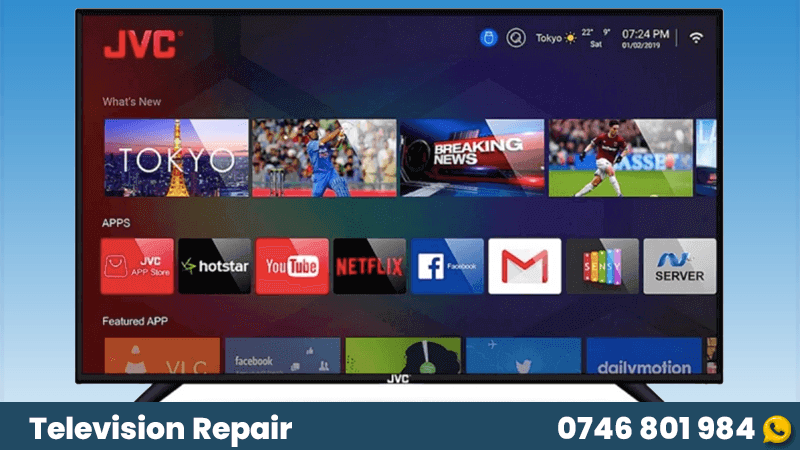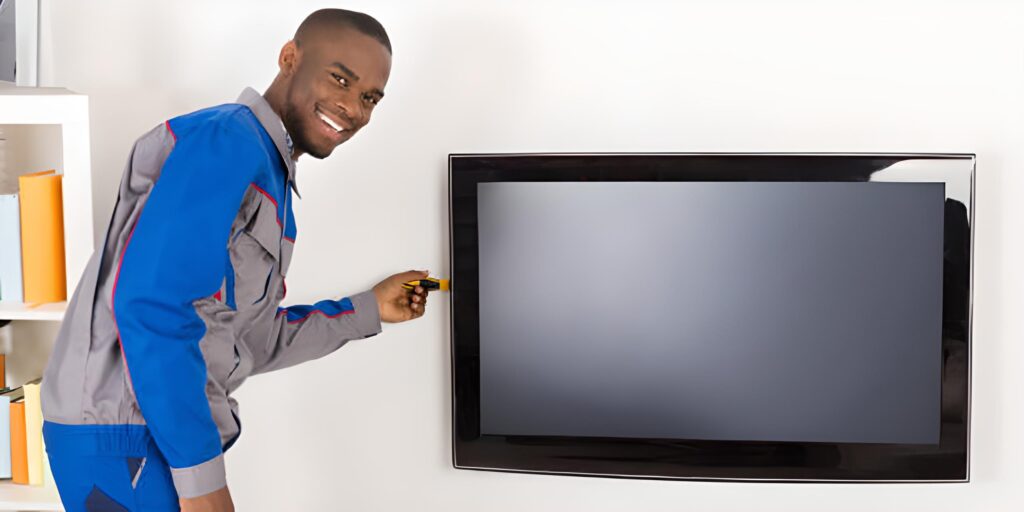Are TV Repairs Worth It?
Television is a major source of entertainment and information in most homes, but like any electronic device, it can break down over time. When your TV stops working or starts showing signs of malfunction, you might wonder, “Are TV repairs worth it?” The answer depends on several factors, including the age of the TV, the nature of the problem, and the cost of repairs compared to buying a new one. In this article, we will explore these factors to help you decide if repairing your TV is the right choice.
Common TV Issues
Here are some common problems that occur with TVs:
- No Picture or Sound: This is one of the most frustrating issues. If your TV powers on but shows no picture or has no sound, it could be due to faulty components, such as the main board, power supply, or backlight.
- Cracked Screen: A damaged or cracked screen is one of the most expensive repairs. In many cases, replacing the screen may cost as much as or more than buying a new TV.
- Picture or Color Distortion: This problem might be caused by a faulty display panel, bad signal reception, or a damaged HDMI port. Technicians can often repair these issues by replacing or fixing the affected parts.
- TV Won’t Turn On: If your TV refuses to power on, the issue could be with the power supply unit, main board, or even a damaged cable. This issue is often fixable, and repairing the power supply is usually cost-effective.
Factors to Consider Before Repairing Your TV
When deciding if TV repairs are worth it, it’s important to weigh a few key factors:
1. Cost of Repair vs. Replacement
One of the most important factors is the cost of repair compared to the price of buying a new TV. If the repair cost is less than half the price of a new TV, then repairing it might be worth it. However, if the repair cost is very high—such as when replacing a cracked screen—it may make more sense to invest in a new television.
2. Age of the TV
The age of your TV plays a major role in determining if repairs are worth it. Older TVs, especially those over 5–7 years old, may have outdated technology, and repairing them might not be cost-effective. Instead, upgrading to a new TV with the latest features could be a better long-term solution. On the other hand, if your TV is fairly new and still under warranty, repairs are likely a better option.
3. Type of TV
Different types of TVs come with different repair costs. For example:
- LED and LCD TVs are generally easier and cheaper to repair compared to older plasma TVs.
- Smart TVs with advanced features like 4K resolution or OLED technology may require more specialized repairs, which can be costly. However, since they offer high-quality viewing experiences, repairing them may be worth the investment.
4. Extent of the Damage
The extent of the problem also affects whether TV repairs are worth it. Minor issues, like bad connections, faulty cables, or power supply problems, can often be repaired at a low cost. However, extensive damage, like a cracked screen or a malfunctioning main board, may be much more expensive to fix.
5. Environmental Considerations
Repairing your TV instead of buying a new one is also a more eco-friendly choice. Electronic waste is a growing concern, and choosing to repair your TV reduces the amount of e-waste and helps conserve resources used in manufacturing new devices.
When TV Repairs are Worth It
TV repairs are generally worth it in the following scenarios:
- Your TV is relatively new and still within its first few years of use.
- The cost of repair is reasonable (less than 50% of the price of a new TV).
- The issue is minor or easily fixable, such as power issues, loose connections, or sound problems.
- The TV has special features or sentimental value that make it difficult to replace, such as a high-end smart TV with advanced display technology.
When It’s Better to Replace the TV
There are times when replacing your TV might be a better option than repair:
- The TV is very old (over 7–8 years) and lacks modern features like 4K or smart capabilities.
- The repair cost is very high, especially for significant damage like screen replacement.
- The TV technology is outdated, and newer models offer better picture quality, sound, and features for a reasonable price.
Whether TV repairs are worth it depends on factors like the age of the TV, the type and extent of the damage, and the cost of repairs compared to a new purchase. For newer TVs with minor problems, repairing can be a cost-effective and environmentally friendly option. However, for older or significantly damaged TVs, replacing them with a newer model may be the better choice. Before making a decision, it’s always a good idea to consult with a professional technician to get an accurate repair estimate

